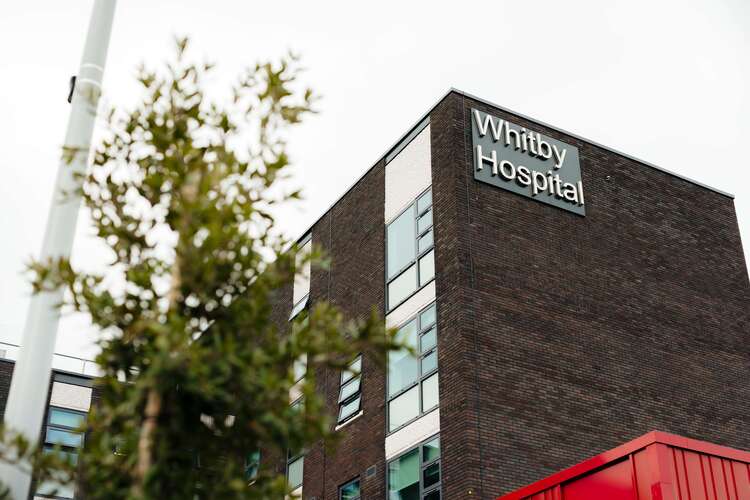National programme says NHSmail was ‘unacceptable’
- 9 March 2004
The National Programme for IT has said that the decision to terminate the £90 million contract with EDS for a national NHS email and directory service, just 18 months after it was signed, was taken because EDS was failing to deliver and take-up of the service too low. With the future of the NHSmail service now thrown into doubt, it is unclear what arrangements will be put in place to ensure continuity of service to the existing 62,000 NHS staff using NHSmail. The NPfIT has, however, confirmed that having ended the contract between EDS and the NHSIA it will now enter into mediation with EDS. Details of what will be discussed in mediation were not disclosed, but EDS made clear it will be seeking compensation. EDS told E-Health Insider that it will be putting in a claim for £10.8 million in compensation for the unilateral termination of the contract and would "see what happens". The £10.8 million compensation claim relates to running costs incurred by EDS in delivering the NHSmail service. Asked whether EDS might sue if it did not get redress through mediation a company spokesperson said: "That is a potential scenario, I’m not saying that what we would do, but that is a scenario." Although a leading IT supplier to the UK government, EDS has show itself in the past willing to seek redress in the courts over disputed public sector contracts. In 2002 EDS took legal claims related to the National Air Traffic Control System project to the Court of Appeal. The NHSmail contract was awarded to EDS by the NHS Information Authority in October 2002, shortly before NHS IT director-general Richard Granger came into post. Its terms and conditions are understood to not be as stringent as those contained in NPfIT contracts, which are said to include the toughest gagging clauses in the public sector. The NPfIT said that by discussing the termination of the contract and issues related to it publicly, EDS had potentially undermined "the confidentiality of the contract and the effectiveness of the mediation process itself". In a statement the firm said: "EDS believes that any disagreement with the NPfIT could have been resolved via recourse to the dispute resolution procedures contained in the contract, and for these reasons is disappointed with the NPfIT decision to terminate the contract without seeking mediation." So why was the contract terminated? According to a national programme statement: "EDS’ delivery of the contract has been the subject of ongoing concerns including unacceptable delivery delays, issues in the functionality of the services and service capacity." The national programme declined to answer questions from E-health insider on the nature of the delivery delays and functionality problems. The NPfIT statement said that the NHSmail contract was not delivering the value hoped for due to low take-up. "There has been a low take-up of the services and therefore the contract is not delivering the value previously hoped for." EDS for its part said: "EDS has been fully committed to this programme and was implementing the service in line with its contractual obligations." The firm argues that any disagreement with the national programme "could have been resolved via the dispute resolution procedures contained in the contract". On the issue of low take-up of the NHSmail service, EDS says that the level of take-up has largely been limited by the fact that NHSmail has not been sufficiently promoted by the NHSIA, and offered to NHS staff on a self-service basis. Asked by E-Health Insider whether they believed the NHSIA had fully promoted the service, an EDS spokesperson said: "Our view was that they had not done so." The company pointed out that in March 2003 Sir John Pattison, NHS Director of Research, analysis and information, had singled out the implementation of the project for praise. In its statement the NPfIT said: "The causes of these problems are matters of contention between the NHS and EDS. The parties are moving to mediation, as prescribed in the contract, and it is therefore regrettable that EDS has chosen to discuss these issues publicly and potentially to undermine the confidentiality of the contract and the effectiveness of the mediation process itself." Citing legal advice the statement said that the NPfIT and the NHSIA were not prepared to make any further statement or comment. It did however categorically deny that "the NHS or any individual has sought to portray unfairly the service as failing or that the NHS has failed to promote the service without good cause". "…The NHS came to the view after due and proper consideration that EDS has failed in its delivery of such a service and it was for this reason that the NHS took the decision to terminate EDS’ contract in accordance with its contractual provisions." A company spokesperson told EHI that it would continue to provide the NHSmail service to the 62,000 existing users, but could offer no guarantee about the long-term future of the service. "EDS very much hopes that it can agree a way to ensure continuity of service with the NPfIT, although responsibility for ensuring continuity of services rests with the terminating authority." However, the EDS spokesperson said that an earlier statement from the NPfIT, which stated "Arrangements for continuity of service are being put in place," had been issued unilaterally without reference to EDS. History March 2002 – NHS Web-based Email Due for Summer Launch May 2002 – EDS is Preferred Supplier for NHS National e-Mail Sep 2002 – EDS Signs $142m Deal for NHS Directory and e-Mail Service October 2003 – NHSmail take-up minimal so far




